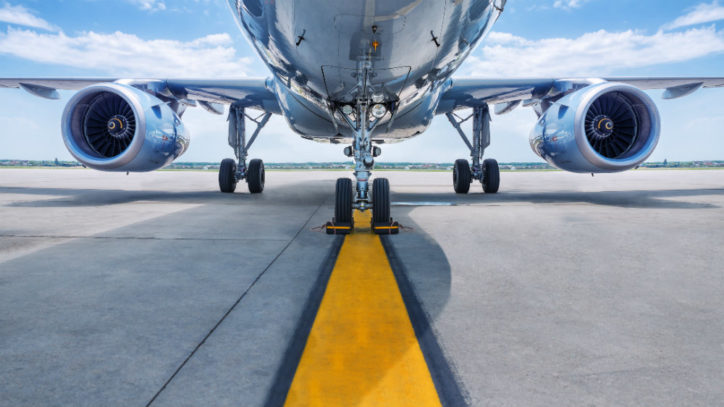
For airliners like Air Canada (TSX:AC)(TSX:AC.B) and WestJet Airlines (TSX:WJA), fuel is the single biggest expense. It’s a simple fact that leads us to a simple conclusion: in an environment of rising fuel prices, airline stocks will underperform.
This has been the case for WestJet stock, which has a one-year negative return of 29%, as the price of Western Texas Intermediate (WTI) increased 22%. WestJet’s fuel cost, which represents 30% of its total costs, rose almost 50% and EPS fell 65%. 2018 was a year that can be characterized by increased spending, lower returns, and increased system capacity, as the airliner has stepped up its international growth strategy.
While the five-year chart on Air Canada stock looks very impressive, showing a return of more than 300%, the last year has been less impressive, with the stock remaining range-bound amid plenty of volatility.
So, where do investors go from here? What can we expect going forward?
Well, in my view, the risk on Air Canada stock has become decidedly elevated.
While Air Canada has continued to surpass expectations, as the company continues to successfully transform itself into a profitable business through the cycles, I am leery about the future.
The company’s focus on return on invested capital, which has hit as high as 15%, has been key to its performance, but we can see that this trend is reversing in this new environment (most recent guidance has come down to 12% from previous guidance of 13-16%).
You see, we cannot escape the fact that rising oil prices present a real challenge for the airliner, as fuel is its most significant cost at more than 30% of total expenses. And with oil hovering in the $70 range, this is problematic for Air Canada, as we can see in the fact that fuel expenses increased 50% versus last year in the most recent quarter.
For now, pricing is offsetting increases in fuel prices, as the airliner has been able to raise fares without seeing a hit to traffic. In fact, in the third quarter traffic increased 7.5%. For now, demand remains quite healthy, and the airliner is still generating ample cash flow.
The company’s strategy to transform itself has only just begun, with a focus on and investment in fleet modernization, international expansion, network diversification, and the roll-out of Rouge. Coming soon is product for the premium customer, which includes lie-flat “seats,” dining, valet, etc., which will drive growth for the airliner.
But let’s not forget, Air Canada is still a highly cyclical company — one that will not fare well if and when consumers rein in their spending as a result of higher interest rates and heavy consumer debt loads.
And this coupled with rising fuel prices will continue to be a strong headwind for airline stocks.
Fool contributor Karen Thomas has no position in any of the stocks mentioned.